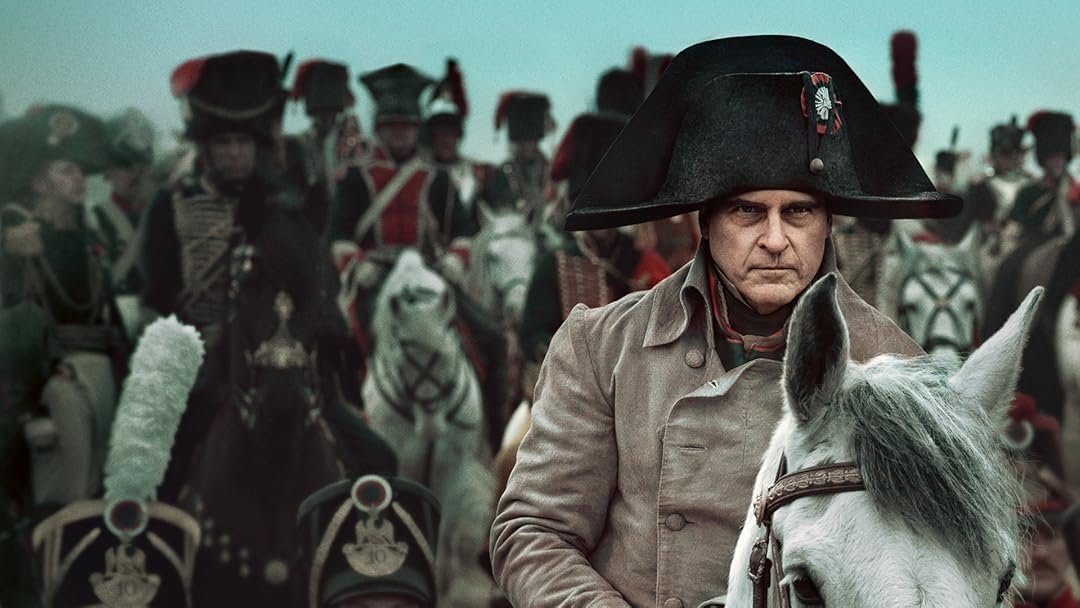🎬 What Can Napoleon Teach Us About Leadership?
“If we don’t take Toulon, we won’t fulfill our mother’s dream.”
The emperor of fear. Leading from fear.
🚨 SPOILER ALERT!
In Napoleon (2023), we see a man not just shaped by ambition and war—but haunted by something more subtle: expectation.
One of the most powerful military leaders in history was not only fighting battles on the battlefield—but within himself. He wasn't just led by vision or strategy.
He was led by fear.
Fear of not being enough.
Fear of disappointing the people he loved.
Fear of not fulfilling someone else’s dream.
🎯 Not His Dream—His Mother’s
In a moment of high tension, Napoleon says ut openly:
“If we don’t take Toulon, we won’t fulfill our mother’s dream.”
This is not the voice of power.
It’s the voice of pressure.
It reveals a truth most leaders hide:
Even greatness can be driven by fear of disappointing someone else.
How many of us are still chasing goals that aren’t truly ours?
💔 Josephine and the Search for Validation
Napoleon’s obsession with Josephine—despite betrayal, distance, and rejection—isn’t just about love.
It’s about needing to be chosen. To feel worthy. To matter.
When she withdraws, he crumbles.
Because his sense of self was never anchored in purpose—but in proximity to people who made him feel important.
This is fear-based leadership in disguise:
You build empires, but you’re still chasing love
You win wars, but you lose your self-worth
You look invincible, but feel invisible
🤯 What If One of History’s Most Powerful Men Was Led by Fear?
What does it say that Napoleon—the emperor, the general, the legend—was governed by internal wounds? BY his inner child?
That his downfall wasn’t just due to overreaching ambition…
But the emptiness beneath it.
At LeaderNess, we believe:
Leadership driven by fear can create short term impact, but not long term impact
The bigger your external world becomes, the more dangerous it is to neglect your internal one
Without self-awareness, even greatness becomes self-destruction
💣 The Cost of Chasing Someone Else’s Dream
Napoleon wasn’t just fighting for territory. He was fighting to be seen—by his mother, by Josephine, by history.
It helped ignite a chain of wars that would devastate Europe for over a decade.
Estimated human cost of Napoleon’s wars:
➡️ 3 to 6 million people dead across Europe.
➡️ Entire countries destabilized.
➡️ Families torn apart for a dream that may have never been his.
This isn’t just about ambition. It’s about what happens when fear and external validation are in the driver’s seat of leadership.
Because when leaders don’t own their inner world, the outer world pays the price.
💡 The LeaderNess Model in Action
Napoleon’s journey is a masterclass in leadership imbalance.
🔸 Find – He never separates his own purpose from others’ dreams (mother, Josephine, France)
🔸 Feed – Instead of feeding clarity or emotional depth, he feeds validation loops
🔸 Fuel – He acts—aggressively, endlessly—but not from wholeness. He fuels performance, not purpose.
His legacy? Colossal achievements, yes.
But also deep emotional fragmentation and one of the biggest defeats in history.
✨ Final Reflection
Napoleon teaches us that leadership without self-awareness is a ticking time bomb.
Napoleon reminds us that greatness without groundedness is a tragedy waiting to unfold.
That when leadership is driven by fear—by the pressure to prove, perform, or please—it can conquer continents… but destroy lives.
💬 True leadership starts when you stop living someone else’s dream—and start owning your own.
He conquered nations, but never conquered himself.
💬 True leadership isn’t about how much you win—it’s about whether you’re leading from your truth or someone else’s expectations.


